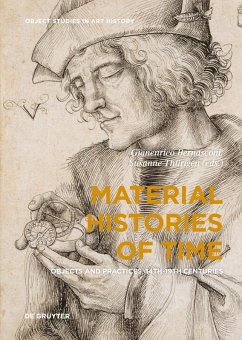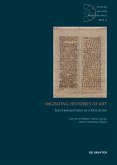The historiography of timekeeping is traditionally characterized by a dichotomy between research that investigates the evolution of technical devices on the one hand, and research that is concerned with the examination of the cultures and uses of time on the other hand.
Material Histories of Time opens a dialogue between these two approaches by taking monumental clocks, table clocks, portable watches, carriage clocks, and other forms of timekeeping as the starting point of a joint reflection of specialists of the history of horology together with scholars studying the social and cultural history of time. The contributions range from the apparition of the first timekeeping mechanical systems in the Middle Ages to the first evidence of industrialization in the 18th and 19th centuries.
Material Histories of Time opens a dialogue between these two approaches by taking monumental clocks, table clocks, portable watches, carriage clocks, and other forms of timekeeping as the starting point of a joint reflection of specialists of the history of horology together with scholars studying the social and cultural history of time. The contributions range from the apparition of the first timekeeping mechanical systems in the Middle Ages to the first evidence of industrialization in the 18th and 19th centuries.
Dieser Download kann aus rechtlichen Gründen nur mit Rechnungsadresse in A, B, BG, CY, CZ, D, DK, EW, E, FIN, F, GR, HR, H, IRL, I, LT, L, LR, M, NL, PL, P, R, S, SLO, SK ausgeliefert werden.









